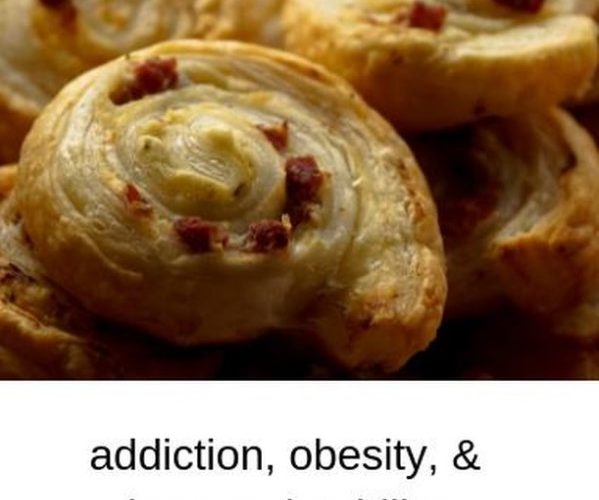Foods made to taste exceptionally good (hyperpalatable) through combining high fat and high sugar can also lead to behavioral addiction, which can lead to obesity.
Hyperpalatable foods can produce an addiction‐like syndrome. Animals presented with either high‐sugar or high‐fat diets eat excessively but do not gain weight as they offset the increased intake by eating less. It is only the high fat and sugar combination that causes weight gain.
We believe that the obese patients’ relationship to food is more similar to a behavioral addiction like pathological gambling rather than a classic substance addiction, but there is no clear-cut withdrawal mechanism. With “food addiction,” according to the National Institutes of Health, there is a “harmful use that is maladaptive but does not meet the criteria for dependence.” The refeeding cycle is driven by external cues, anticipatory cues, pancreatic training, and loss of fat metabolism adaptation. Specific nutrients do, however, cause an endorphin activation and a neurochemical effect in the brain.






